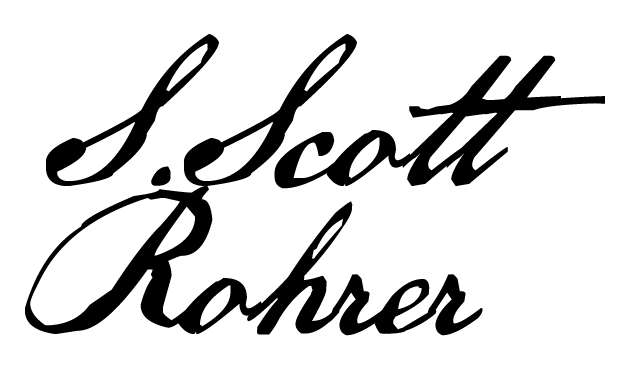The Library of Thomas Bradbury Chandler
In writing The Folly of Revolution, primary sources dictated what I could do—and not do. Thomas Bradbury Chandler’s family burned his papers when he went into exile in 1775, and none of his sermons, with one exception, are extant. This meant I could not write a traditional biography of Chandler’s life that recounted his family life and fleshed out his religious beliefs through his sermons. Instead, I was able to reconstruct his intellectual world by drawing on the sources that were available, such as his correspondence to Anglican leaders in London. The main source was a seemingly dry one: a 1790 listing of the nearly 2,000 books in Chandler’s library. This catalog, however, did not include the complete book title or author’s full name. My first task was to track down the full title and author’s first name when possible. And then I went through the catalog to uncover patterns: What did Chandler study? What were the causes and periods of history that animated him? This time-consuming, and tedious, exercise produced interesting results. As The Folly of Revolution discusses in detail, the Glorious Revolution of 1688-1689 was the key event that shaped Chandler’s political and religious thought. From his readings into British history, this loyalist developed his views of democracy, rebellion, authority, monarchy, and church-state relations.
The following is a short introduction to this library, followed by a PDF containing the full catalog.
Despite earning a meager fifty pounds a year in salary, Thomas Bradbury Chandler managed to accumulate one of the most impressive private libraries in early America. At his death in 1790, Chandler owned 1,527 books, plus 96 pamphlets and tracts. By comparison, the typical library of a colonial-era parson was about 150 volumes, and Chandler’s holdings surpassed those of his close Anglican colleagues. The Reverend Charles Inglis’ “Catalogue of My Books” listed 256 books and tracts. Elsewhere, Patrick Henry—the fiery patriot orator of “give me liberty or give me death” fame—owned 200 books; wealthy Virginian planter Robert Carter III owned about 1,000; and Thomas Jefferson—likely the greatest bibliophile in early America—possessed 2,640 books in 1783.
A graduate of Yale College and an Enlightenment devotee, Chandler read widely, although he retained a distaste for science and philosophy. He enjoyed music, poetry, history—especially English history—and biographies of everyone from Mary Queen of Scots to a female polymath named Anna Maria van Schurman. A bit of the whimsical could be found on his shelves. He owned a book on the Art of Cookery, and a tome on the medicinal effects of music, singing, and dancing on the human body. And nestled between a book on the Church of England and one on the creation story was the plainly titled but deliciously suggestive Reflections upon Ridicule; or what it is that makes a man ridiculous, and the means to avoid it, which was first published in 1717 and popular enough to have gone through at least six editions. Chandler also owned the page-turning The Fourth Volume of Letters Writ by a Turkish Spy, who liv’d five and forty years undiscover’d at Paris.
What really interested Chandler was plumbing the past for insights into the contemporary causes that animated him. The core of his library was on religious history. Chandler wanted to understand the state church’s place in society; what rights, if any, dissenters possessed; and the nature of authority, obedience, monarchy, and rebellion.
The complete listing of Chandler’s 1,527-volume library follows. It is based on the Catalogue of Books, for Sale by Mrs. Chandler, in Elizabeth-Town, New-Jersey; Being the Library of the late Rev. Dr. Chandler, deceased (Elizabeth-Town, NJ: Shepard Kollock, 1790).
The works are listed exactly as they were in the catalog and in the same order (the cataloger did not follow strict alphabetical order). Some entries give the size of the book (e.g., folio, quarto), and most include the price in pounds, shillings, and pence. I have added subject headers and provided the author, title, year published, and additional information about the work when known.
Copyright S. Scott Rohrer


